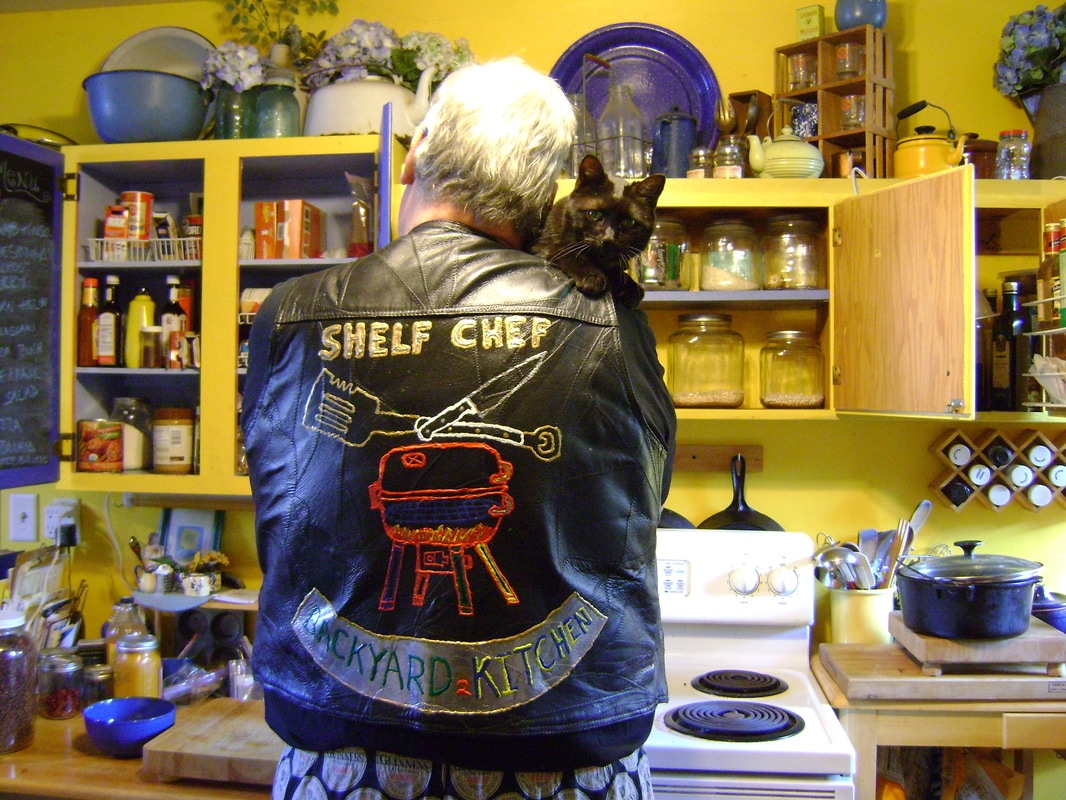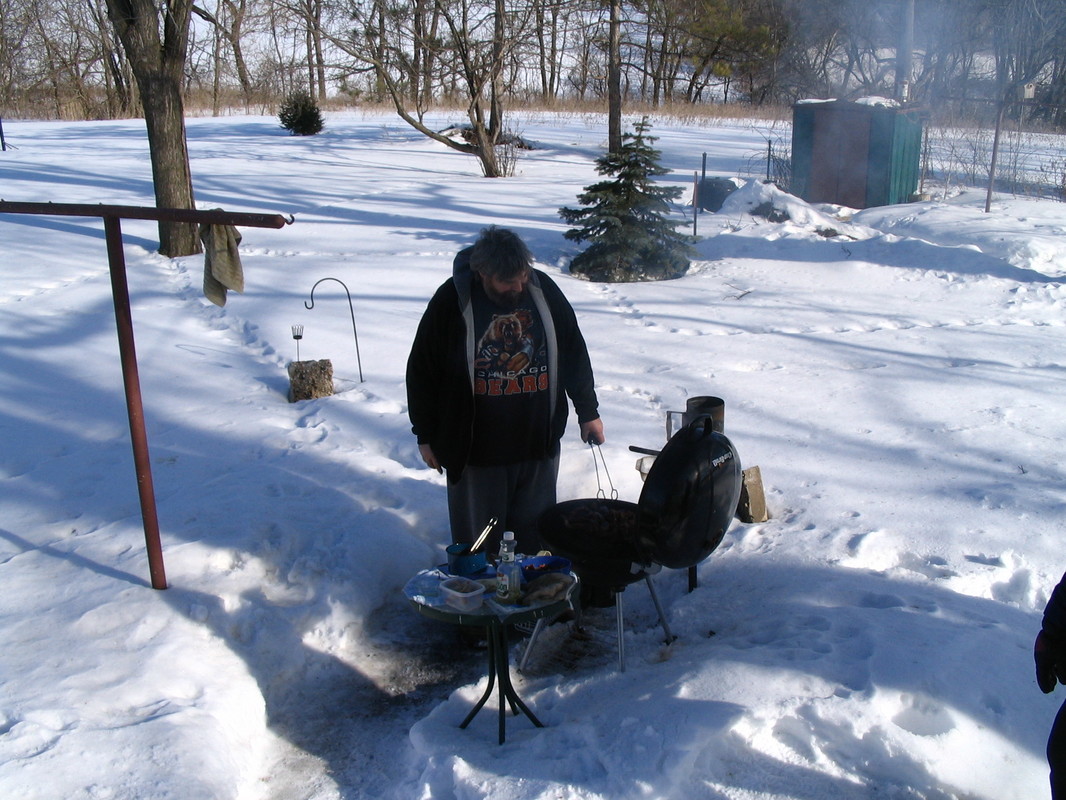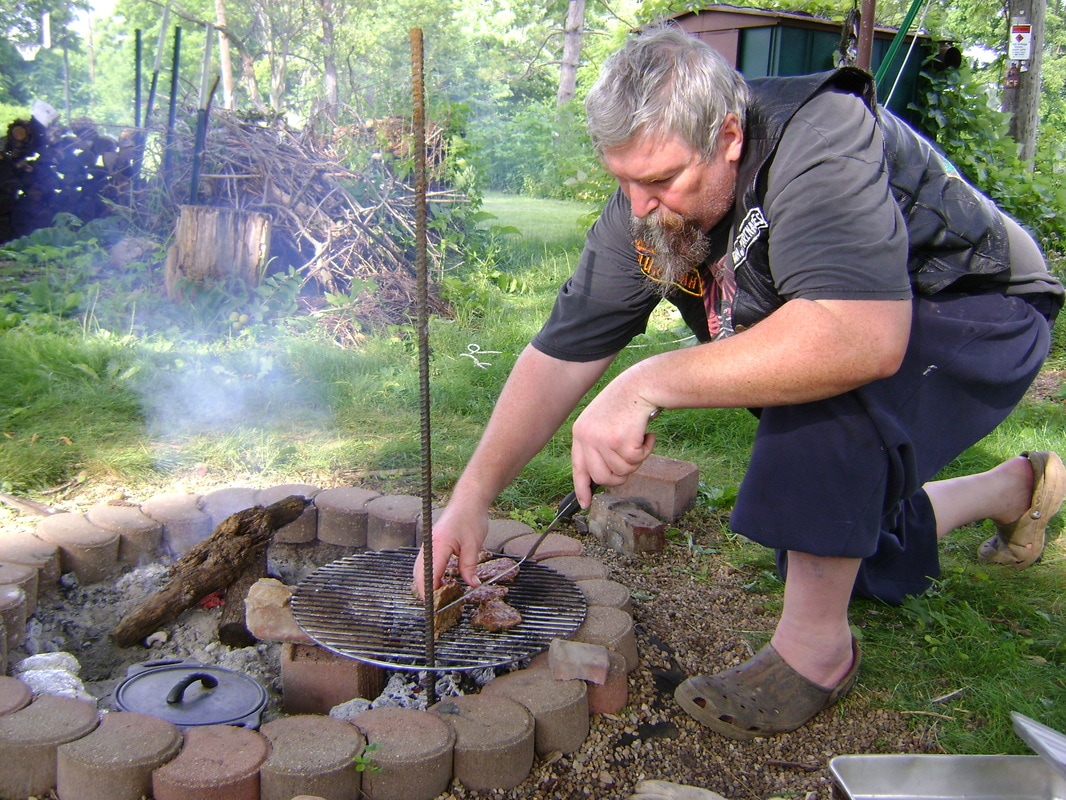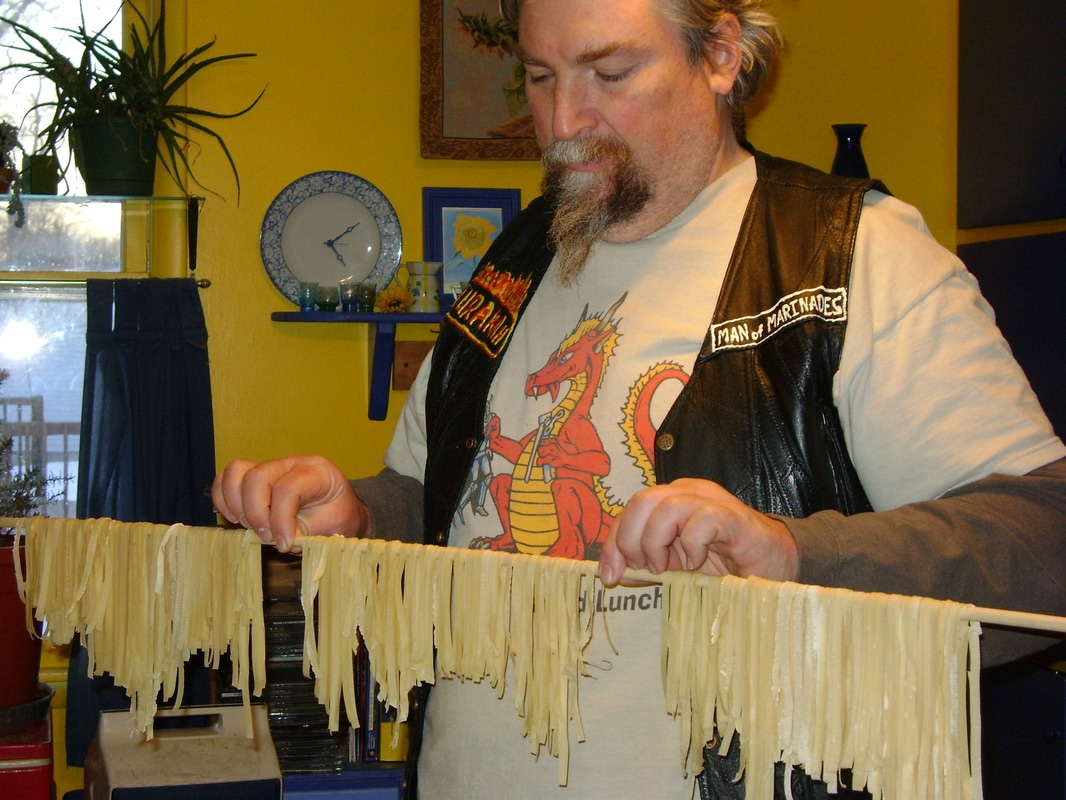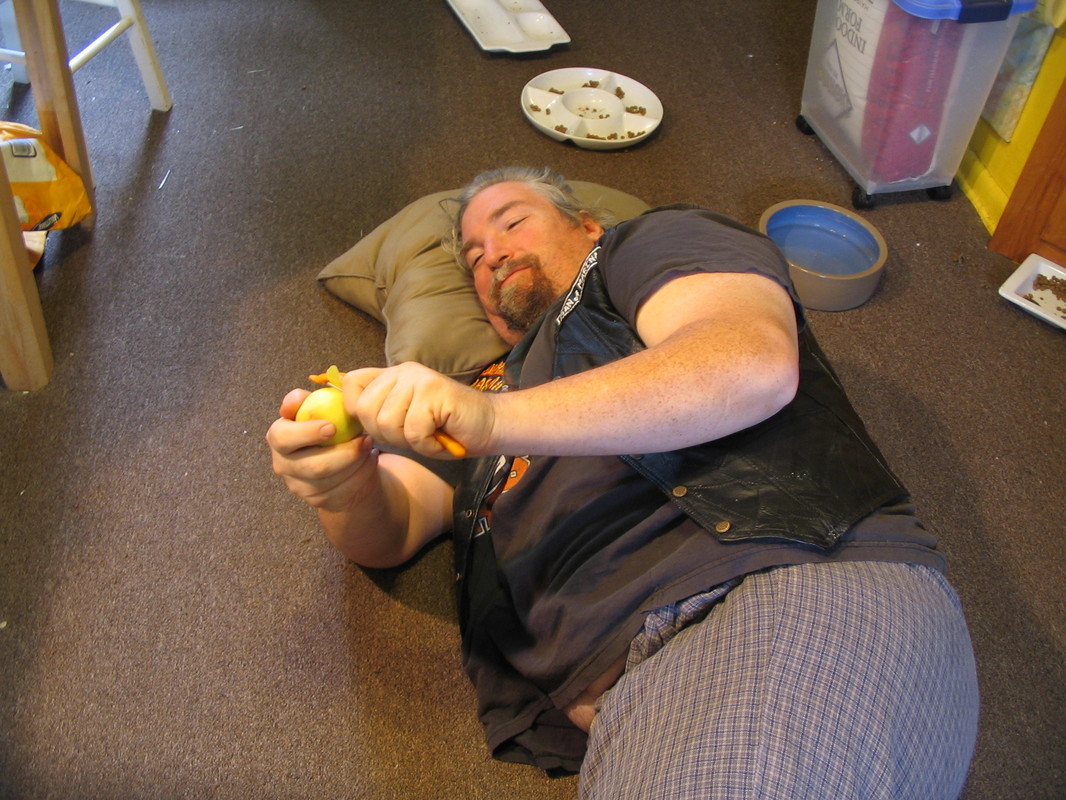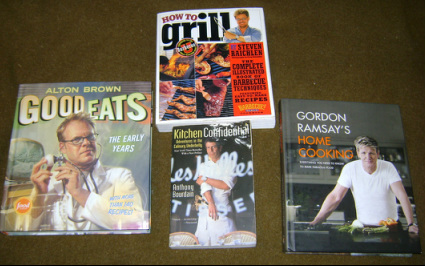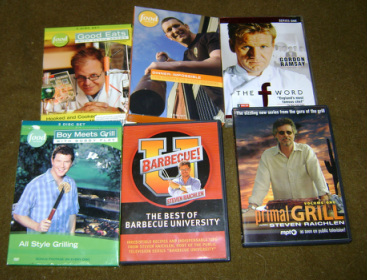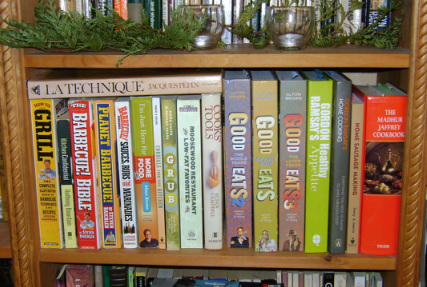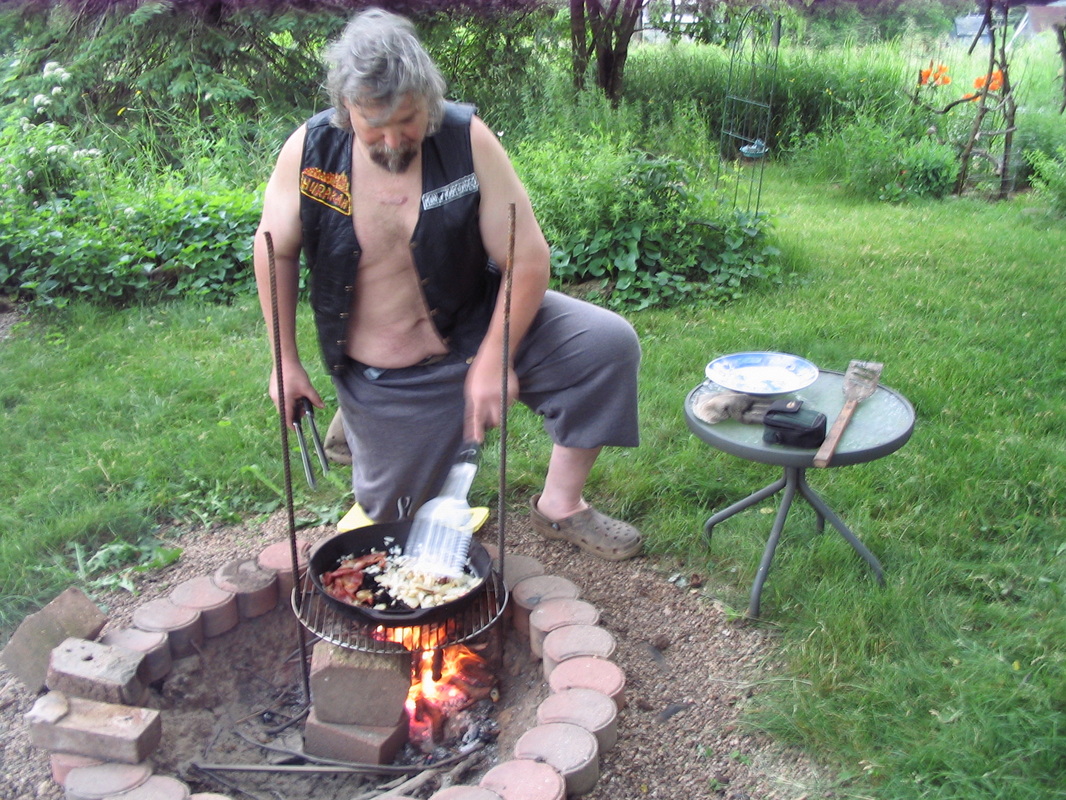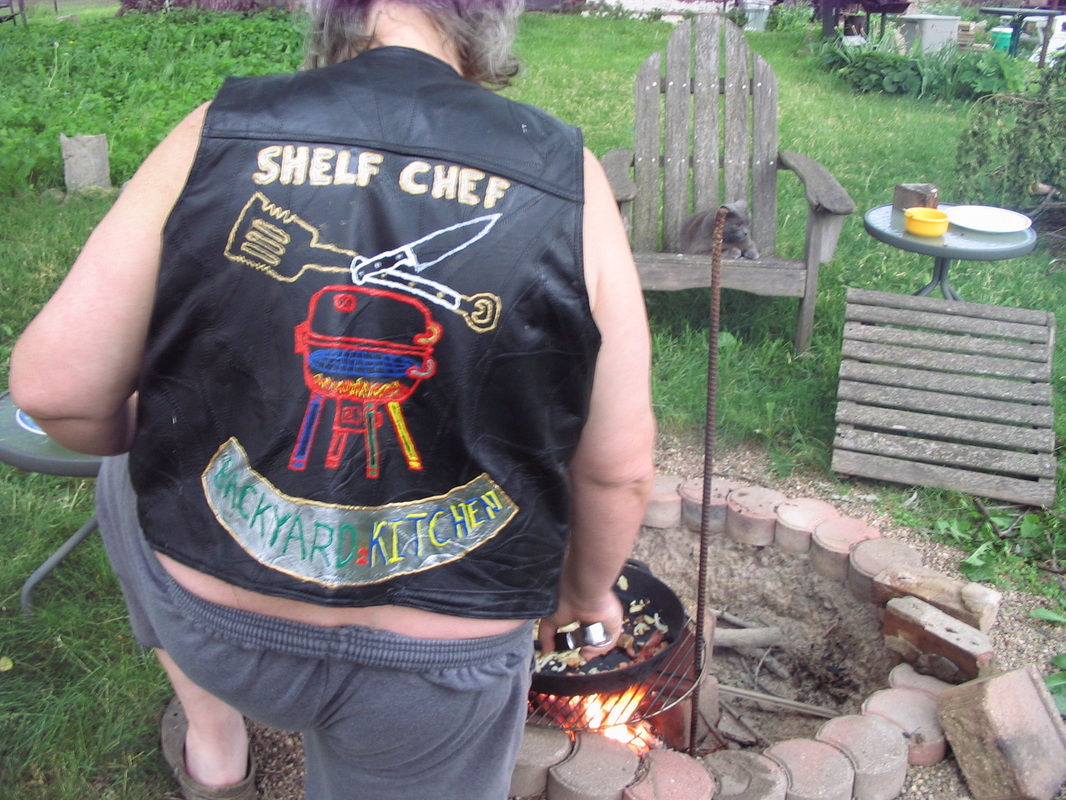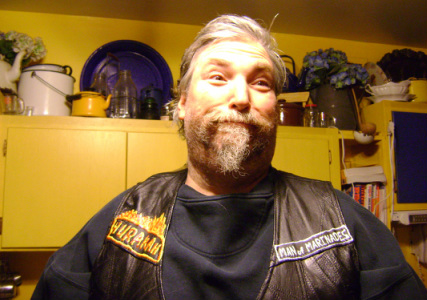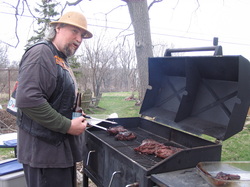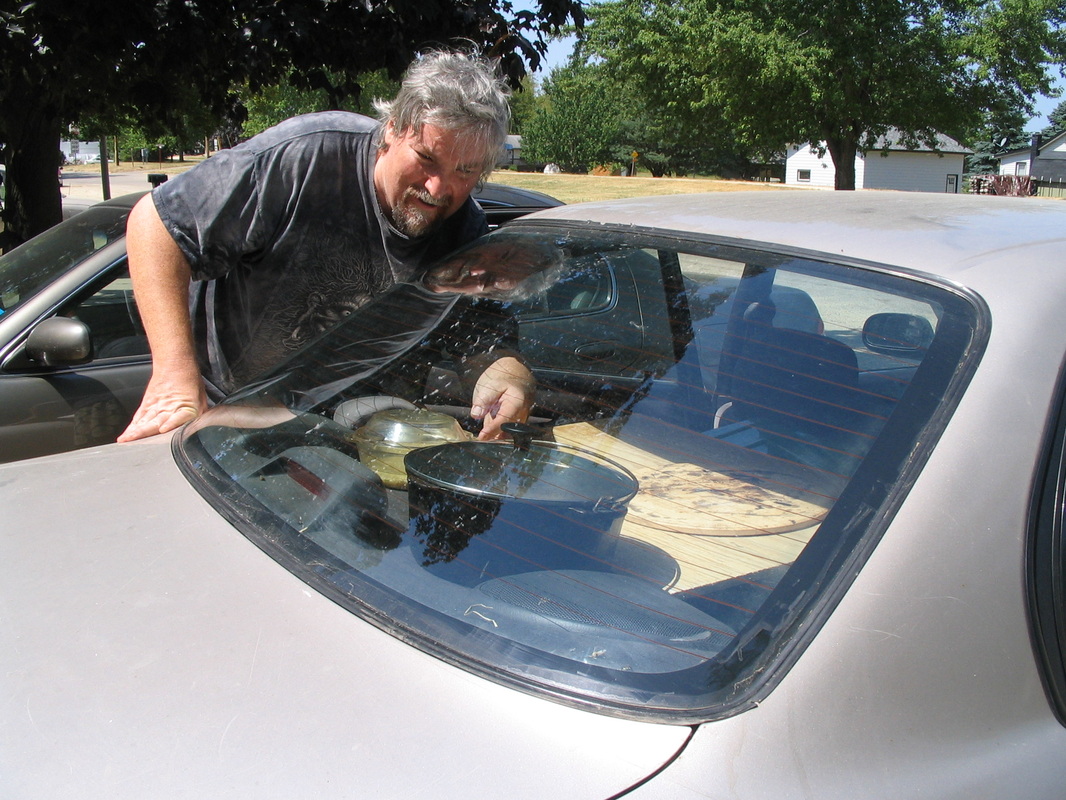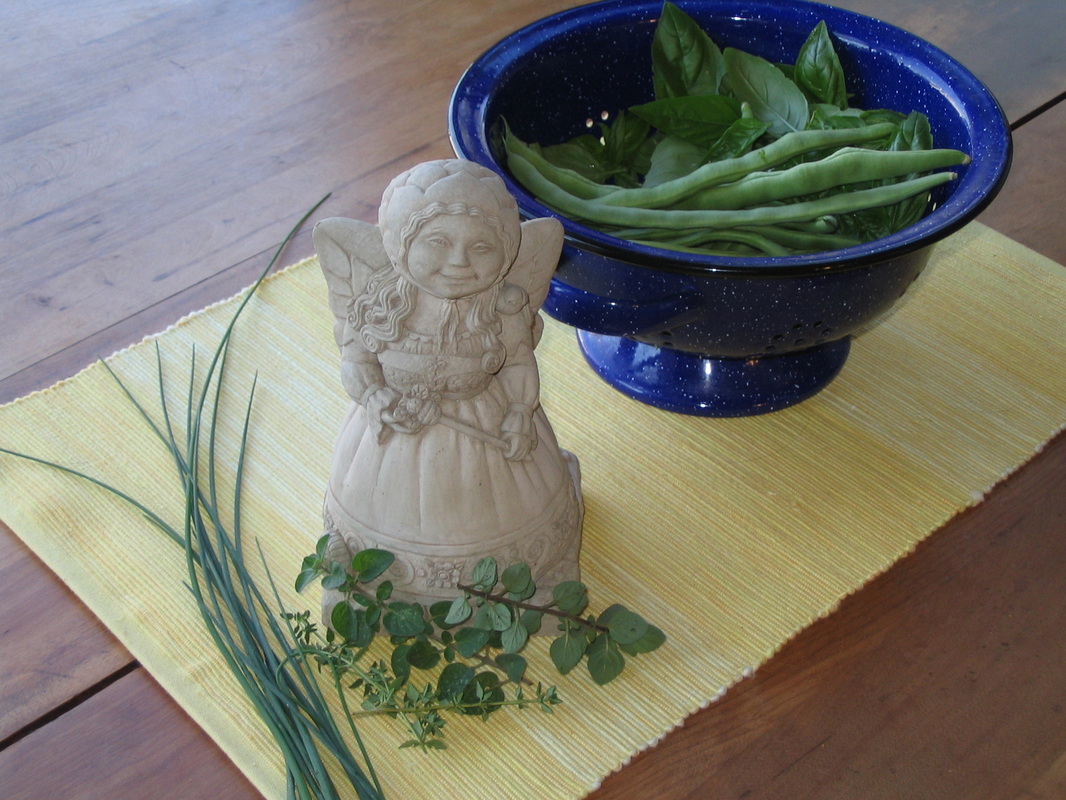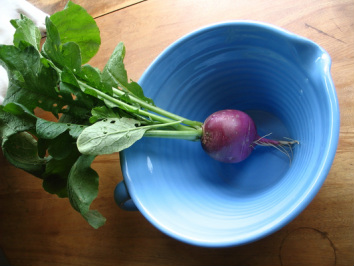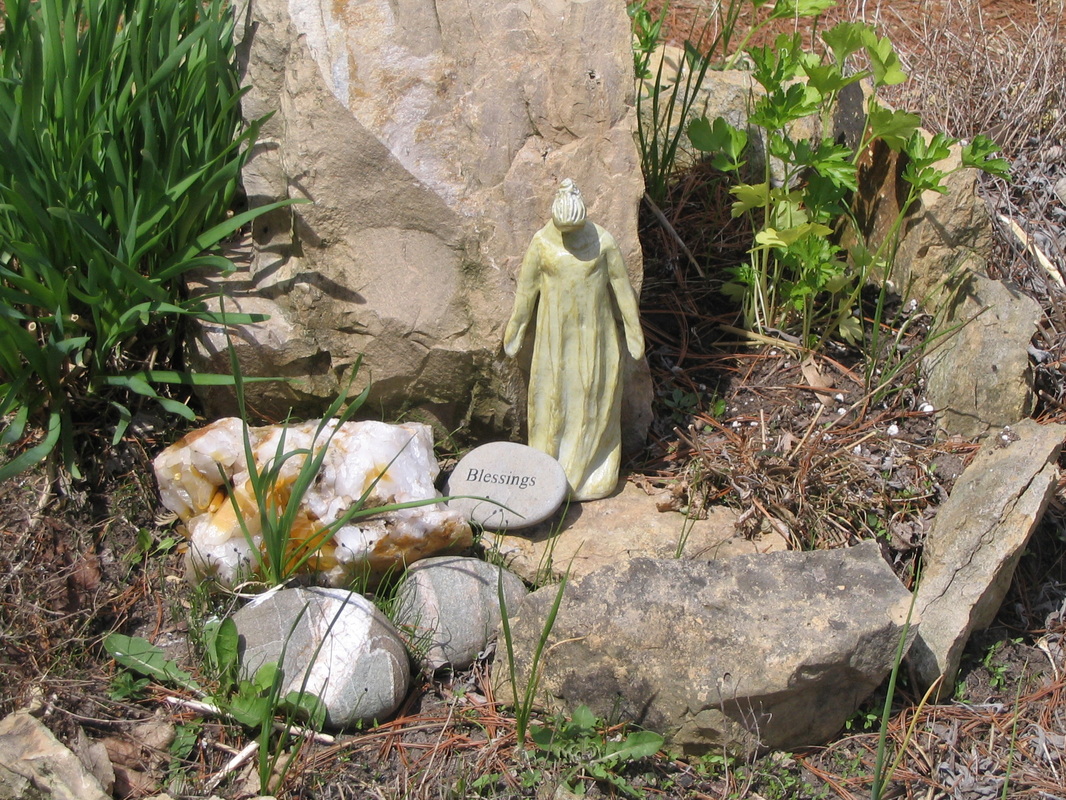Bear’s Surprisingly Adequate Shelf Chefing
A big man, a tiny cat, and not much of a plan...
|
As you can tell, I have eaten a lot of food over the years and I'm tired of eating crap. There are more flavors out there than salt, fat, and sugar. Shelf Chefing is my way of learning how to cook good food on a more consistent basis. Is homemade pasta better than store bought? I can now say yes it is. Adults say don't play with your food. Bear says the time to play is while you're cooking. I like to have fun while I experiment with various cooking styles. |
1. Why Do I Call Myself a Shelf Chef?
2. This Shelf Chef’s Gurus
3. The Shelf Chef Look
4. The "Levels" of Shelf Chef
5. The Spirit of Shelf Chef
1. Why Do I Call Myself a Shelf Chef?
Shelf: I used to watch Top Chef and Master Chef competitions. I have enough performance anxiety of my own, without worrying about time limits and exotic ingredients, and I don’t want to have their cutthroat attitude when I cook. I just want to have fun when I experiment with food, and cook what is on my shelves.
Chef: I like cooking inside and outside, but don’t have the time or money to learn to become a pit master, grill master, or trained chef. However, if the chef is the person responsible for the food and I’m the only one cooking, then I must be the chef.
Chef: I like cooking inside and outside, but don’t have the time or money to learn to become a pit master, grill master, or trained chef. However, if the chef is the person responsible for the food and I’m the only one cooking, then I must be the chef.
2. This Shelf Chef’s Gurus
|
Steven Raichlen: Initially, a conversation with a co-worker got me interested in grilling. On his advice, I picked up Raichlen’s How to Grill. Reading it got me interested in buying a grill and became my go to book for grilling anything. It taught me how to keep the grill clean (If your wife thinks it’s disgusting, then it is) and the basics of controlling the grill’s heat. It showed me that grilling was about more than cooking large chunks of meat. Learning about using rubs, sauces, and marinades was enlightening. His book, Barbecue Bible, also taught me new concepts for side dishes and starters.
Alton Brown: This guy is not a “professional” chef (that is, he doesn’t work in restaurants), but he sure makes the science behind cooking food fun to watch on his Good Eats show. Anybody that can combine Julia Childs, Mr. Wizard, and Monty Python to teach cooking is someone I want to watch. With over 200 episodes, you will defiantly learn something new and find some new dishes to try. Gordon Ramsay: I overlook his attitude and the TV drama, because the guy can cook and has guts. On the F-word show Season 1 (F for Food), he had a dessert competition against non-professionals where he lost 6 out of 8 times. Letting that air with his ego takes courage. On Behind Bars, he goes into the prison system to try to get inmates working so they can pay society back and have a skill when they get out. On his Great Escape show he was the fetch and carry boy for a “chef” in the slums of India. From his Ultimate Cooking Course (20 videos on you-tube that go with his Home Cooking book- the American version of Ultimate Cooking) he stresses knowing where your food comes from. Theresa has also proven the importance of this by showing me that the food from our gardens tastes way better than plants from the grocery store. Anthony Bourdain: He pushes the idea of mise-en-plase, or everything in its place, better than anybody. He taught me about knowing your cooking area, organizing your supplies, and getting as much done as possible before people arrive so there is less chance for panic and screw ups while cooking. Believe it or not, this guy taught me dining etiquette. He feels that if you travel, whether in the U.S. or to another country, you should eat the food the way they do in order to experience their culture. He showed me that food is a large part of many cultures! Eating something that is not normal to you can open your eyes to new treasures of flavor (I tried lamb leg marrow, which isn’t too bad, as long as I get it cooked enough). Click to see these cooking books & DVDs in our Resources Section. |
3. The Shelf Chef Look
|
On an episode of the F Word, Gordon Ramsay said that he knows he’s ready to cook when he puts on his uniform- the chef’s dress whites. I thought that might work for me too. I’m not one to wear aprons, nor have I earned a chef’s white jacket, so I decided to come up with something else. At the same time, I started watching Sons of Anarchy, where the main characters wear their colors proudly. Jax said, “You’ll have to kill me to get this cut (leather vest) off me.” This led me to a interesting combination that works for me.
I dug out a leather vest Theresa had gotten me years ago (I never understood why) and found I could wear it since I had lost some weight. I painted designs on the vest that helped me develop my cooking philosophy. It represented me and my tools. On the back of the vest:
On the front of the vest:
|
4. The "Levels" of Shelf Chef
|
Level 1: The Gastronomically Curious- aka Bubba
You’re just getting started. You like to eat and want to know how to make good food. Your big questions are: How DO I put food to fire? What are the different ways to cook? What can I make with a grill or smoker? What can I do with a stove or oven? How do I use spices? What makes good food? Where do the good ingredients come from? Bubba says, “Get me something to cook, some fire, and a beer, and I’m ready to go!” Level 2: The Student / Cook of Anarchy Time to get experience. You read books, watch cooking videos, and listen to what friends say about cooking for others. You experiment with strange foods (see my Cook of Anarchy page). You experiment with tastes and tools. You begin to share what you know with others. You cook for friends who don’t have to be nice, so you can get honest feedback. You shouldn’t be afraid to screw up (my Captain Morgan and Mt. Dew soaked chicken sooo did not work). Level 3: Mise-en-place (Everything in its place) The experimenting pays off. You have your stuff together. You know how to plan. You know how to use fire and manage your tools. You know the traditional seasonings, but can also improvise. You have the confidence to cook for others and maybe 95% of the time they like it. Food may be your calling. You may compete or get chef training. You might be in the food business getting paid big bucks. Level 4: The Housewife You can do it all, but without getting paid (sometimes after a full day working at your paying job). You can do a lot with very little, you know how to budget & plan, you may be sweating the meal but won’t let others see it. You can cook for your family or a party of 100 friends or strangers. You’re a professional without a title. |
There aren't any pictures of me at Level 3 or 4, because I’m still at Level 2. Sometimes I’m damn lazy about my cooking. I collect many cookbooks, but am not very disciplined about studying them or trying the recipes. I still have performance anxiety. Sometimes I’m even nervous cooking for Theresa.
5. The Spirit of Shelf Chef
|
Theresa and I are trying to eat as locally and seasonally as we can. The Wheel of the Year has four seasons (Winter, Spring, Summer, and Fall) during which some things grow and others don’t. Several Summers ago, Theresa finally taught me to like tomatoes (before that, I thought of them as being in the larvae stage of development). We ate them every day we could, picking them from the garden or buying them from the farmer’s market. Then, when Winter came, she cruelly announced that we shouldn’t buy them from the grocery store when they were out of season (she was correct- they taste like cardboard and waste energy being transported thousands of miles to our store). If we want to eat tomatoes in January we need to harvest them in the Fall and preserve them. (Theresa comments that after not having them all Winter, eating the first one of the season, sun warmed and picked directly from the vine, becomes a religious experience. Bear’s note: Since Theresa is typing this for me, she gets to make comments.)
We try to go organic and local for meat, and are lucky to have a friend who sells lamb & beef in the Fall. The most natural way to get local, organic meat is to hunt for it. In Wisconsin that means deer and we are lucky to have another friend who shares venison with us. When you respect your food, you’re less likely to waste it. (Theresa comments: Did you know that Americans waste 25% of their food!) I remember that whatever I cook, be it plant or animal, it was alive and had to die in order for me to consume it. I wrote the meal blessing below to show my respect. |
